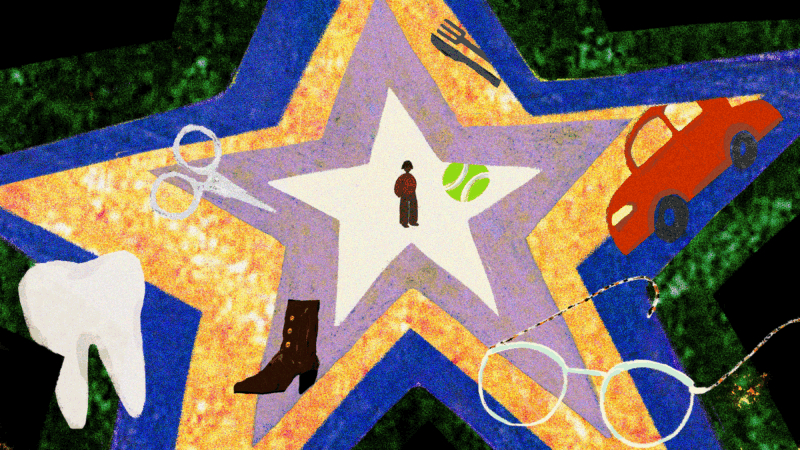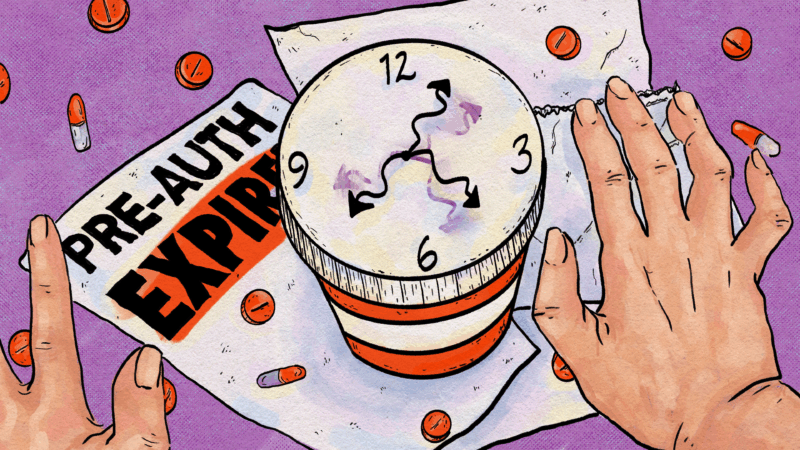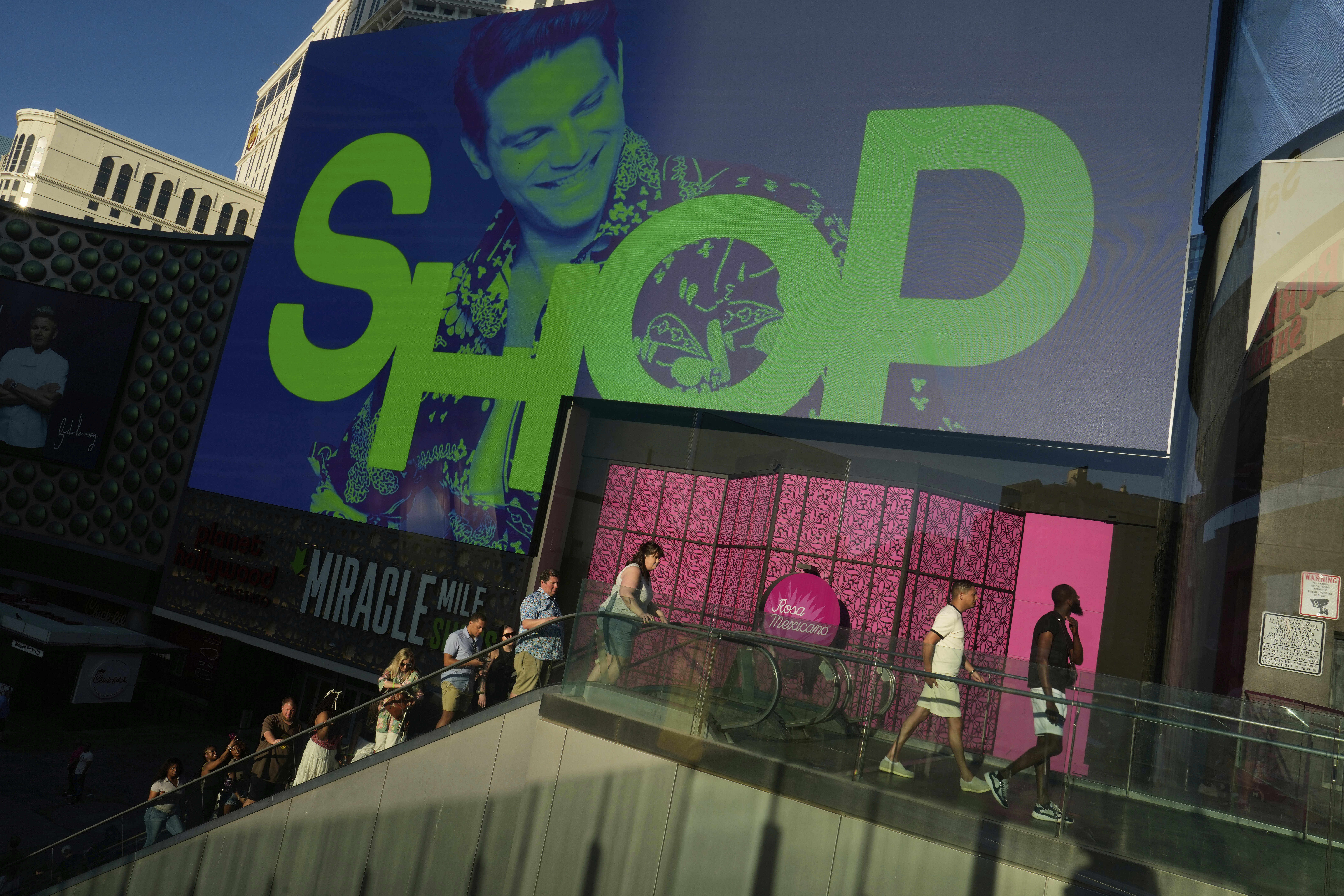To Get The Vaccine Or Not: How These Black Health Care Workers Made The Decision
Mary Williams is a strong believer in taking charge of her own health. It’s what she thinks about in her work as a nurse and it’s what she talks about in her monthly podcast. In a recent episode, she shared the story behind her passion.
“One of the reasons why is because of my mom and all of my maternal aunts, who died of some type of complication of coronary artery disease,” Williams said in the episode.
Williams, who lives in Clinton, Miss., said when her mom had a heart attack in her 60s, the doctors, who were white, didn’t take the time to explain how she could get better.
“She was in the hospital for a while, then they sent her home with some papers,” Williams said. “Information is not enough. Sometimes you need people to walk things out with you.”
Her mom died a decade later.
This sparked Williams’s passion for health, but also made her wary of the medical system. It’s part of the reason Williams has no plans to get the coronavirus vaccine. She wants to see more data first.
“Right now, I just don’t have the trust that I would feel comfortable getting it,” Williams said.
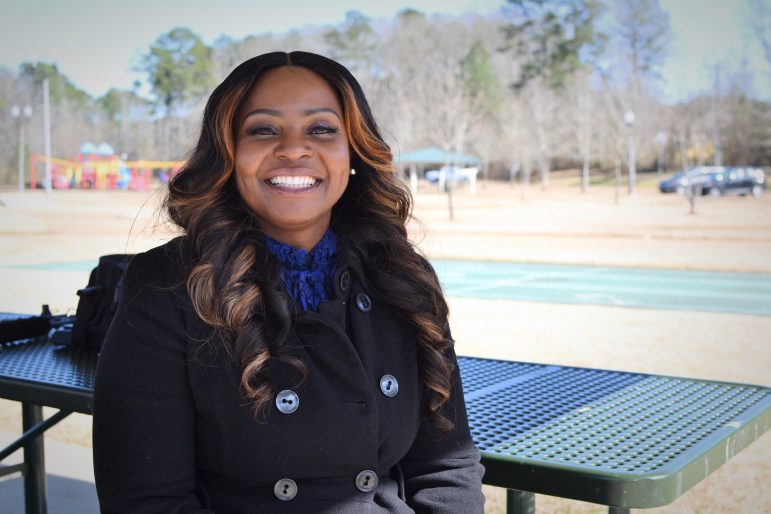
While many people are clamoring to get a coronavirus vaccine, some, like Williams, are choosing not to get it right now. Vaccine hesitancy appears to be happening more within the Black community and among Black health care workers. In a national survey of 2,500 health care workers in January, 15 percent of respondents decided not to get the vaccine.
Black health care workers declined the shot at a much higher rate of 35 percent. Many in health care are skeptical.
The University of Mississippi Medical Center is the largest hospital in the state. At its most heavily staffed campus in the city of Jackson, about 62 percent of white employees have opted in to get a vaccine compared to around 30 percent of Black employees to date, according to data acquired from UMMC officials.
Officials said most of the employees who volunteered to get a vaccine have been able to get one, but they recently had to create a waitlist and expect more supply soon.
For Williams, her lack of trust is partially tied to the history of Black patients being mistreated by the medical system, or not receiving the care they need. Williams mentioned the infamous 1930s Tuskegee study, in which the U.S. Public Health Service studied the effects of untreated syphilis on Black men for decades without their informed consent, even after a cure was found.
But her mom’s experience and what she’s seen regularly throughout her 20 years as a nurse are bigger guiding factors.
“I know what the behind-the-scenes look like,” she said. “I know what systemic racism in health care and in hospitals looks like.”
Former U.S. Surgeon General Jerome Adams, who’s Black, has said it’s important to acknowledge and validate the real historical reasons for concern, address those concerns and to have trusted messengers step up to show that it’s safe.
Gwendolyn Lyle, a Black nurse from Terry, Miss., said she was also hesitant to get the vaccine, but she did her research and decided to put aside her fears.
“This is somewhat of an emergency. And we’re going to have to trust somebody right now,” Lyle said.
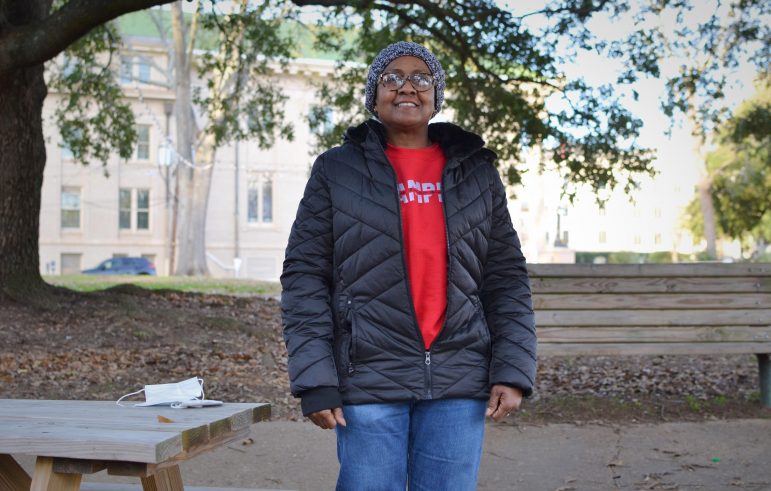
Lyle, who has a degree in Biology, doesn’t think scientists would mislead the public about the safety of the vaccine. And she felt even more comfortable getting the shot after she saw other Black health care workers getting it.
“I would definitely rather have a level of protection than to not have any at all,” Lyle said. “And one of the things I did was pray about it. I asked God to let this vaccine do for me what it’s supposed to do and not do me any harm.”
Medical Racism Is Still Real For Health Care Providers
The CDC has said that vaccine hesitancy is on the decline, but it’s a concern in the South, where a large percentage of Black Americans live. In Mississippi, Louisiana and Alabama, Black residents are being vaccinated significantly less than their share of the population. Access is also part of the problem, as vaccine sites are missing from many Black neighborhoods across the South.
Dr. Fatima Stanford, a public health researcher at Harvard University, said a person’s comfort level can be tied to how they are treated in health care settings and whether or not they feel valued. And this is true even for those who work in health care.
“As Black Americans, we experience everyday racism, whether it’s in health care, whether it’s in our daily lives outside of the health care sphere,” Stanford said. “You would think that being in the health care system would allow our voices to be heard.”
“But I’ve often found that I’m just another person with Black skin.”
Stanford said trust can be built, but that depends on how people are approached. Over the summer, Stanford was part of a team of doctors who conducted a study on how to effectively talk to people of color about coronavirus safety.
Doctors recorded messages about coronavirus precautions and sent them to more than 14,000 Black and Latino adults. They found that straightforward messages stuck with people more. So for vaccine messaging, Stanford also suggests keeping it simple, avoiding wonky details about doses and temperature storage, and instead tailoring the message for the community.
“We need to talk about why the vaccine is important now,” said Stanford. “You could probably say, ‘You probably have some friends and family that have died. How do we help avoid that situation for you?’ ”
The study also found that Black participants seemed to trust Black doctors more than doctors of other races.
“The problem is that only 5 percent of doctors in the United States are Black,” Stanford added. “It’s a lot of work put on a very small group of people.”
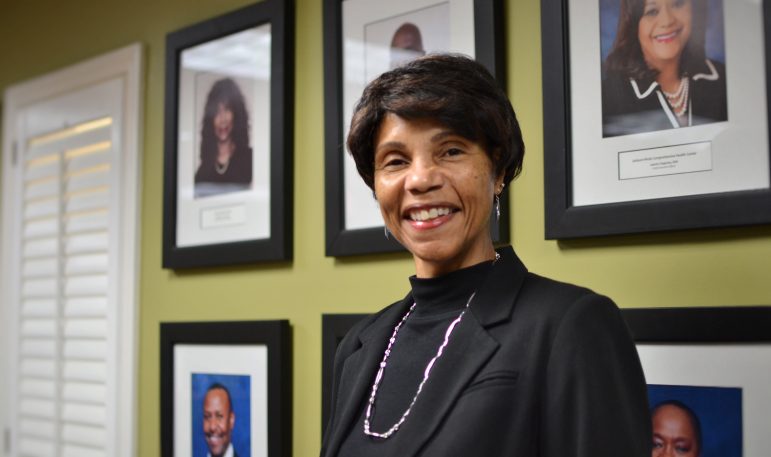
Role Models Paving The Way
Some Black health care professionals are stepping up to be advocates, not only for Black communities in general, but specifically for their colleagues.
In December, Sonja Fuqua, a nurse and director at the Community Health Center Association of Mississippi, became one of the first five people in Mississippi to get a vaccine.
“I was excited, like, ‘Oh, the vaccine is here! This is a major tool in the arsenal to fight COVID-19,’ ” Fuqua said. “But for me, it was also a personal privilege to represent nurses, Blacks and women.”
Fuqua said when she shared her experience online, many people reached out to her.
“How’s it going? Any side effects? You feel OK?” Fuqua said. “Several people responded and said, because I saw you, I’m going to go ahead and do it.”
Of course, Fuqua added, this type of outreach isn’t going to convince everyone.
“You have people who just don’t believe in vaccines, period. There are people in the middle of the road, those who don’t have enough information. And then those that are advocates like myself,” Fuqua said.
But for those people who are still struggling to trust the system, Fuqua thinks the role model and advocacy strategy is still worth trying.
“It’s not going to turn on a dime, but what works is working,” Fuqua said. “You just need to continuously do it.”
Williams, who’s not planning on getting the vaccine, said she’ll become more trustworthy of the medical system, if the support, leadership and advocacy the Black community is receiving now continues beyond the pandemic.
This story was produced by the Gulf States Newsroom, a collaboration between Mississippi Public Broadcasting, WBHM in Birmingham, Alabama, WWNO in New Orleans and NPR.
Why farmers in California are backing a giant solar farm
Many farmers have had to fallow land as a state law comes into effect limiting their access to water. There's now a push to develop some of that land… into solar farms.
Every business wants your review. What’s with the feedback frenzy?
Customers want to read reviews and businesses need reviews to attract customers. But the constant demand for reviews could be creating a feedback backlash, experts say.
Can’t get a prescription renewed? Here’s how to cope with prior authorizations
These health care hurdles can stand in the way of getting treatment your doctor says you need. Here's what to know about how to deal with them.
‘Get back to integrity’: Oklahoma’s Kevin Stitt on Republicans after Trump
NPR's Steve Inskeep asks Oklahoma Gov. Kevin Stitt about his spat with President Trump, immigration and the future of the Republican Party.
Civil rights leaders say the racial progress Jesse Jackson fought for is under threat
Activists say racial progress won by the Rev. Jesse Jackson is under threat, as a new generation of leaders works to preserve hard-fought civil rights gains.
Tariffs cost American shoppers. They’re unlikely to get that money back
After the Supreme Court declared the emergency tariffs illegal, the refund process will be messy and will go to businesses first.


